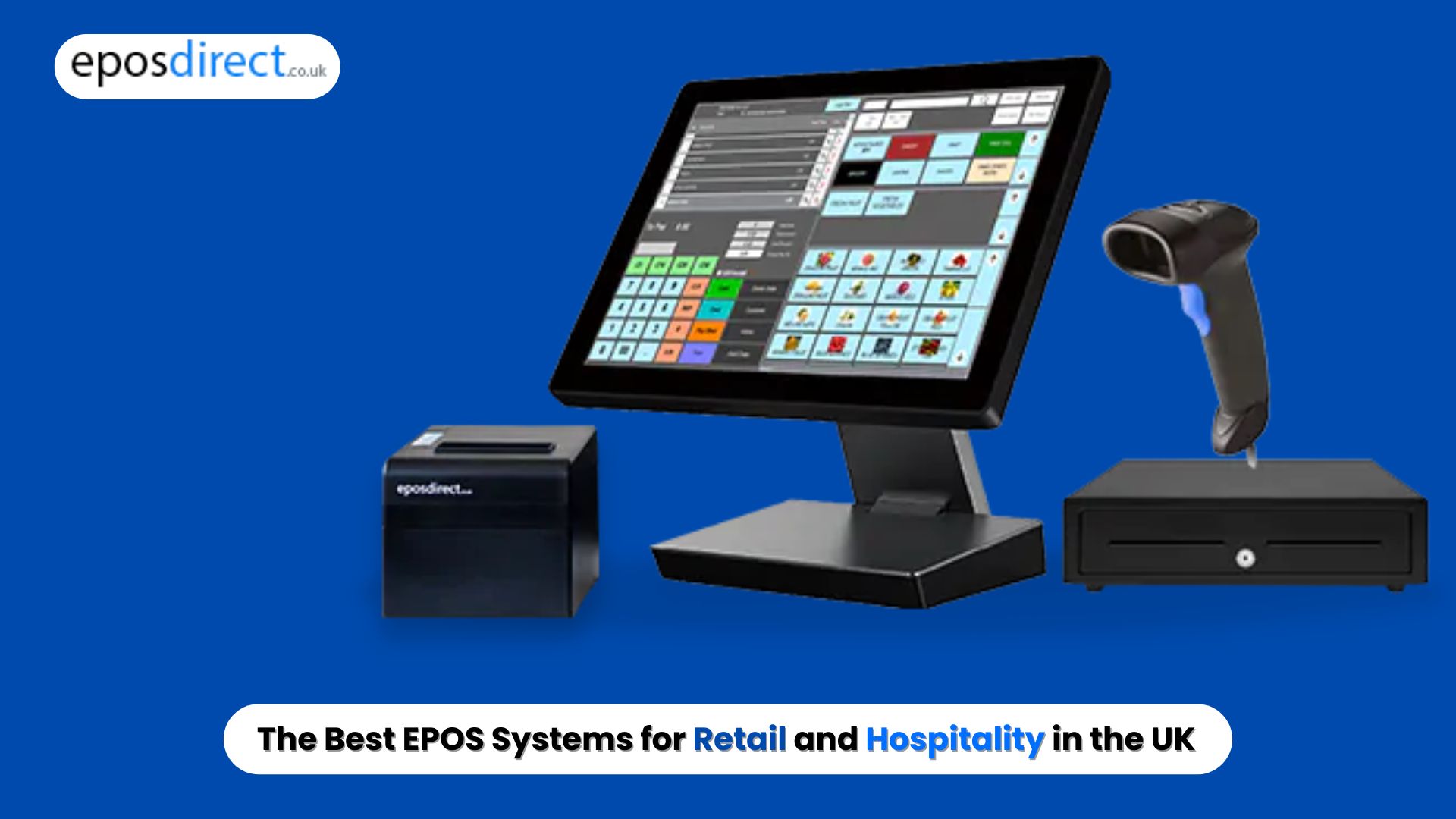We use cookies to make your experience better.
To comply with the new e-Privacy directive, you agree to the privacy policy and our use of cookies
Blog
- Read more
In today’s competitive retail landscape, a POS system is no longer just a cash register—it’s the central hub for all business operations. Choosing a POS system that integrates seamlessly with third-party applications is essential. These integrations allow retailers to sync inventory, accounting, and e-commerce platforms, reducing manual errors, saving time, and providing a complete view of sales and operations. A connected POS system enables smarter decision-making, smoother workflows, and scalability for growing businesses.
1. EPOS Direct: Tailored Solutions for UK Retailers
Overview:
EPOS Direct offers customizable POS solutions for small to medium-sized enterprises in retail, hospitality, and other sectors. Their systems are designed to optimize operations and integrate with key business tools. - Read more
In the fast-paced world of retail, efficiency, accuracy, and seamless customer experience are the cornerstones of success. From independent boutiques to large-scale superstores, retailers across the UK need reliable technology to manage sales, inventory, and customer interactions. EPOS Direct provides industry-leading retail EPOS systems in the UK, designed to streamline operations, boost productivity, and enhance the shopping experience.
Whether you operate a small fashion store in London, a convenience shop in Manchester, or a multi-location supermarket chain, EPOS Direct offers tailored solutions that fit every retail environment. In this guide, we’ll explore why EPOS Direct is the preferred choice for UK retailers, what makes their EPOS systems stand out, and how to select the best system f
- Read more
In the ever-evolving world of business, efficiency and accuracy are no longer luxuries—they’re necessities. Whether you run a small retail store, a bustling restaurant, or a multi-location hospitality chain, the right EPOS system can transform your operations.
EPOS Direct has established itself as a trusted name, delivering some of the best EPOS systems in the UK for both retail and hospitality businesses. In this blog, we’ll explore what makes EPOS Direct a standout choice, the benefits it offers, and how it compares to other systems on the market.
Why Modern Businesses Need an EPOS System
The days of simple cash registers are long gone. Today’s competitive busines
- Read more
Why EPOS Direct is the Best Restaurant Point of Sale System
Running a successful restaurant these days is no longer just about great food and service—it's about smart technology behind the scenes too. Efficiency, accuracy, and data-driven decision-making are vital in the fast-paced world of hospitality. Which is why having the best restaurant point of sale system for managing your business isn't a luxury—it's a necessity.
At EPOS Direct, we understand the unique needs restaurants have—whether it's coping with rush-hour orders, managing kitchen and floor staff, or keeping track of stock and sales records. Our restaurant point of sale systems are designed to make life simpler and more streamlined, and we're a name you can rely on for hospitality EPOS systems in UK.
Why Your Restaurant Needs
- Read more
Whether you’re running a supermarket, pharmacy, clothing store, or restaurant, there’s one tool that quietly powers the entire checkout and inventory process: the barcode scanner.
Often overlooked, a great POS barcode scanner will automatically reduce errors, simplify transactions, and give you instant inventory data. But with all the options available—hands-free to handheld, wired to wireless—how do you choose the ideal one for your business?
In this guide, we’ll break down what barcode scanners actually do, the types available, and how to select the best barcode scanner based on your retail or hospitality setup.
What Is a Barcode Scanner and Why Is It Important?
- Read more
More UK restaurants are adopting advanced Restaurant POS systems to take control of their operations, provide better customer service, and drive more revenue. Whether you operate a small bistro or a large chain of stores, choosing the best EPOS system for your restaurant is a valuable investment.
Let's go in depth about why a newer Restaurant point of sale system can revolutionize your business and what to look for when selecting the best one.
What Is a Restaurant POS System?
A Restaurant POS system (Point of Sale) is more than a tool for processing payments. It's a complete business management system that combines sales, inventory, employee management,






